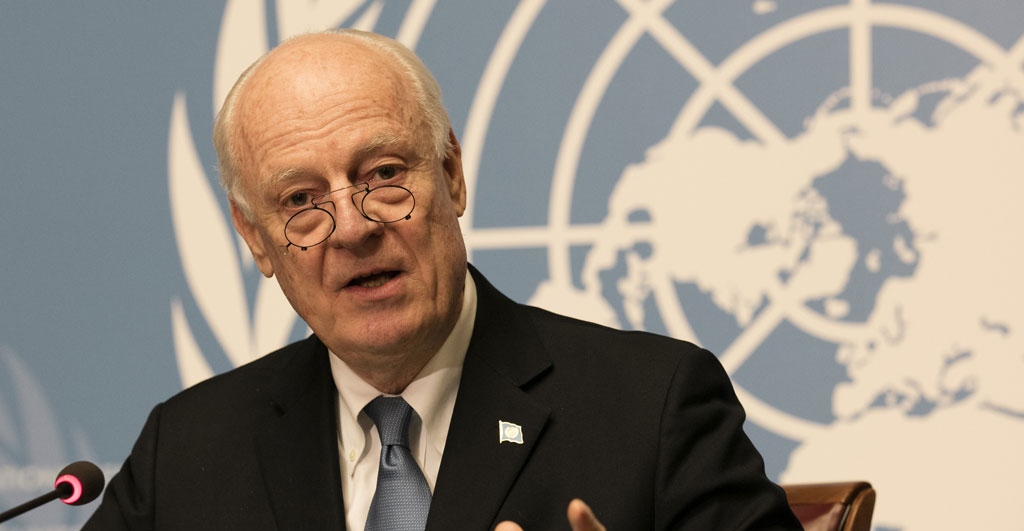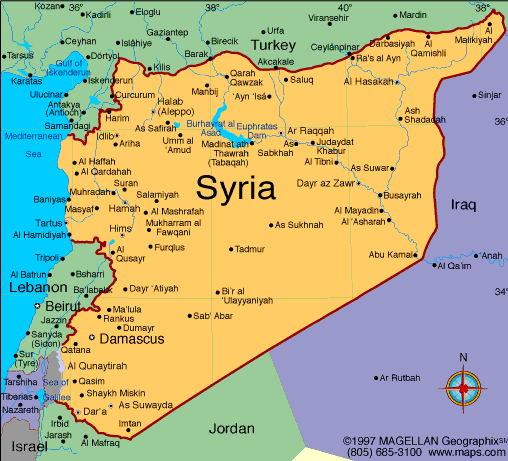Missed opportunity for Syria
December 15, 2017 | Expert Insights

Syria has blamed Saudi Arabia, Western nations and the UN for the breakdown in the latest round of negotiations being held to end the ongoing civil war. The negotiations are slated to continue with other rounds of talks scheduled.
The Syrian Civil War has been taking place since 2011.
Background
Over the span of several centuries, Syria, which was at the forefront of the Islamic Caliphate witnessed multiple invasions and occupations. The Romans to the Crusaders and the Turks have tried to gain control of the region.
In 1946, the modern state of Syria was born when it got its independence from France. A country of fertile plains, high mountains and deserts, it is home to diverse ethnic and religious groups, including Kurds, Armenians, Assyrians, Christians, Druze, Alawite Shia and Arab Sunnis. The majority of Muslim population in Syria is made up of Arab Sunnis.
The Syrian Civil War has been going on since 2011. It began during the Arab Spring protests and due to resentment towards the government of President Bashar al-Assad. The war is being fought by several factions: the Syrian government and its allies, a loose alliance of Sunni Arab rebel groups (including the Free Syrian Army), the majority-Kurdish Syrian Democratic Forces (SDF), Salafi jihadist groups (including al-Nusra Front) and the Islamic State of Iraq and the Levant (ISIL), with a number of countries in the region and beyond being either directly involved, or rendering support to one or another faction.
Relations between Saudi Arabia and Syria have long been strained. They further deteriorated following the civil war. Since then Saudi Arabia has called for the removal of Bashar al-Assad from power multiple times. Saudi Arabia cut off relations with Syria after they decided to close its embassy in Damascus and expel the Syrian ambassador in 2012.

Analysis
The United Nations Special Envoy for Syria, Staffan de Mistura, has been at the center of all efforts to bring the parties to the negotiating table and put an an end to the war. Previous rounds were held between 23rd February to 3rd March 2017; 23rd March to 31 March 2017; 15th May to 19th May 2017 and 10th July to 14th July, 2017.
The eight round of negotiations concluded on December 14th, 2017 have ended in a stalemate with lack of progress. Syria's Chief Negotiator, Bashar al-Jaafari, blamed Western countries, Saudi Arabia and the UN for its failure of the latest round of negotiations to end the country's civil war. Bashar al-Jaafari has stated that one of the preconditions that has been laid out by Syrian opposition was the removal of the current President from power. This, he stated, was a red line that would prevent direct negotiations from taking place. He also blamed Staffan de Mistura. The opposition currently has the support of Saudi Arabia. There are other negotiations scheduled presently.
For his part, Staffan de Mistura called the latest round a “missed opportunity” noting, “A big missed opportunity, a golden opportunity at the end of this year, when in fact there is a clear indication from many sides that the military operations are coming to a close, the Da'esh [also known as the Islamic State of Iraq and the Levant or ISIL] territory is reduced to close to zero.”
He went on to say that at the same time “everybody knows […] that without a clear political process we risk to not have learned the lesson of Mosul, and we risk to not have what should be winning the peace not only winning the war against Da'esh.”
Assessment
Our assessment is that an important opportunity to decide the future of Syria may have been lost at the end of the latest round of UN-sponsored talks in Geneva. The main objective of the talk was to get the warring parties to consider the new constitution for the war ravaged country. We believe that a clear political process must be established so that the priority should be winning the peace as much as it is important to victorious in the war against ISIS.








Comments